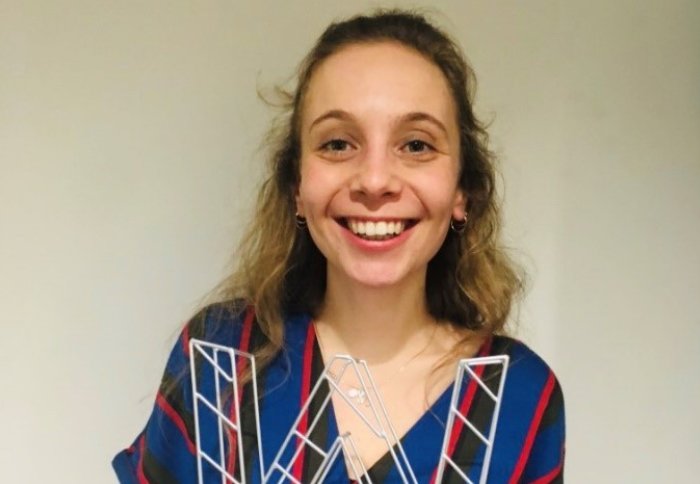CDT student success at Imperial WE Innovate with Orbit Materials

Congratulations to CDT student Sophie Paisley-Marshall who was a finalist and runner up in the Imperial WE Innovate competition held on 7 March 2019.
Sophie, a PhD student in the Centre for Doctoral Training in Sustainable Civil Engineering in the Department of Civil and Environmental Engineering, was a finalist and runner up in the Imperial WE Innovate competition with her idea Orbit Materials.
WE Innovate is Imperial’s flagship female entrepreneurship education programme designed to support the next generation of women entrepreneurs to accelerate their start-ups. The six-month programme supports female students, developing an early stage business idea, to advance their leadership and entrepreneurial skills. The WE Innovate final took place as part of Imperial’s Enterprise Month and Imperial Lates: Wonder Woman event.
Sophie was awarded the runner-up prize for Orbit Materials, as well as the Engineers in Business Fellowship award, totalling £11,500 to support the development and commercialisation of Orbit Materials. Sophie developed the idea for Orbit Materials through her PhD research as part of the CDT in Sustainable Civil Engineering.
Orbit Materials
Orbit materials develops carbon-negative secondary raw materials for construction from waste. Implementation of the technology promotes sustainable waste management, captures carbon and reduces the strain on natural resources.
Natural sand is a fast depleting natural resource, which is an essential component within construction. As urbanisation increases, so does the strain on finite natural sand resources. In order to shift towards sustainable infrastructure resource application, it is necessary to find viable natural sand alternatives.
Orbit Materials has developed a natural sand alternative from waste. Incinerator bottom ash (IBA) is a material derived from the thermal treatment of municipal solid waste. IBA processing plants treat and process the IBA in order to retrieve valuable materials, however, due to the complex composition of the IBA fine fraction, effective re-use of this material poses a challenge.
Orbit Materials have developed an innovative treatment process for the IBA fine fraction, making it suitable to be used as a natural sand replacement in construction applications. The novel process not only stabilises the IBA fine fraction, but also captures carbon. The application of Orbit Material’s process, solves the issue of IBA fine fraction recycling whilst producing a carbon-negative natural sand alternative.
Congratulations to Sophie!
More on WE Innovate at Imperial can be found here:
https://www.imperial.ac.uk/news/190372/five-women-led-startups-building-better-future/
https://www.imperial.ac.uk/news/190488/nextgeneration-washable-cast-broken-limbs-wins/
Article text (excluding photos or graphics) © Imperial College London.
Photos and graphics subject to third party copyright used with permission or © Imperial College London.
Reporter
Linda Slaymaker
Department of Civil and Environmental Engineering